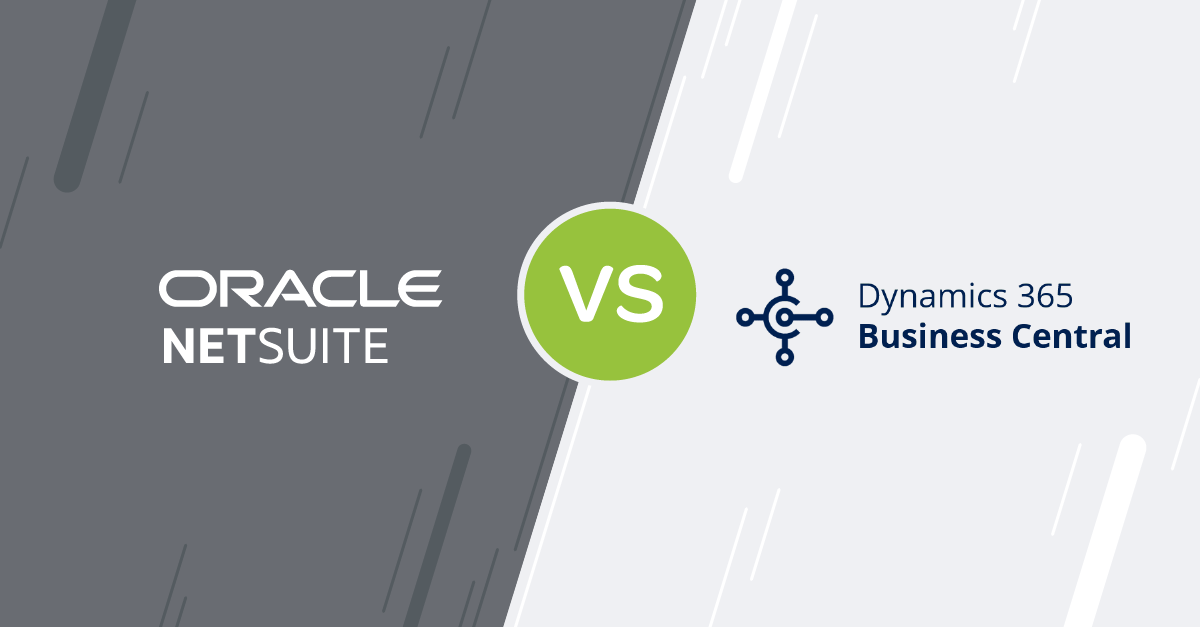Blog
Share this
How to Create an Effective ERP Project Team

by Jalene Ippolito on June 29, 2020
Creating a strong ERP project team is one of the most important things you can do when implementing a new ERP system. It’s common to think IT should take the lead, with input from accounting as they’re heavy system users. But to truly get the benefits of ERP, you need to go broader. An ERP system is cross-functional – it incorporates functions from across your entire business. Your project team should be structured the same way.
Why do you need an ERP project team?
If you’re thinking you can task two or three key people with selecting your ERP solution, stop. It might seem more efficient to rely on a couple people and keep everyone else focused on their roles, but that won’t serve you well in the long run. Why? Because around 60% of ERP projects fail. That’s not meant to scare you off, but rather provide some perspective. When ERP implementations go awry, it’s usually because some (or many) of these critical steps are skipped along the way:
- Securing executive buy-in
- Understanding current business process and identifying what’s not working
- Defining clear goals for the ERP project
- Creating a change management plan to ease the transition
ERP projects can be daunting, but when implemented correctly, they can deliver big returns for your business. Your internal ERP project team plays a critical role in making this happen. So, before we talk about how to build your team, let’s understand what they’re responsible for:
- Gathering input from other users outside the project team to get a more complete view of your current processes, gaps and roadblocks
- Defining the business requirements and setting objectives for the ERP project
- Researching ERP solutions, evaluating the top contenders and selecting the right system
- Communicating the need for ERP and the benefits throughout the organization
- Managing the transition to your new ERP, including process development and training
- Collaborating with the ERP partner to create and execute your implementation plan
Who should be on your ERP project team?
As you start building your ERP project team, include key stakeholders from all areas of the business. Look at your org chart and see which departments will be impacted by the ERP implementation and should have input in the selection process.
Project champion
Without someone leading the charge, there’s a good chance your project will fall off the rails. That’s where your project champion comes in. This person is focused on project management – keeping the ERP project on track, scheduling demonstrations and coordinating with your ERP partner. Here are some key qualities to look for in your champion:
- They’re organized. They manage the big picture – and the fine details – to keep the ERP project running efficiently.
- They’re punctual. They set the tone for the group by showing up for meetings on time and sticking to deadlines.
- They’re transparent. They clearly communicate with the entire organization about the project goals and status updates. And they’re receptive to the thoughts and opinions of others in the group.
- They communicate well. This overarching quality allows them to define roles and responsibilities, keep status meetings on track and handle challenges when they come up.
Executive sponsorship
Be sure to involve at least one member of executive management to keep the project focused, on task and on budget. They should be actively engaged in the process, providing guidance for difficult decisions and encouraging user buy-in. Ultimately, the final decision to buy and implement your chosen ERP solution will rest with this person, so it’s important to have them on board right from the beginning.
Super user
Your super user will become the internal go-to person following your implementation. They’ll learn the processes for every department to understand the full process across the organization and can advise on the impact of any proposed process changes down the line. This person will be heavily involved in the selection, implementation and training for your ERP project.
In smaller companies, it’s common to only have one super user. This makes sense from a resourcing perspective, but it increases the importance of proper process documentation. If your super user is unavailable for some reason, you’ll be more reliant on your ERP partner when questions or issues arise. If you prefer to be more self-sufficient, you may want to consider having at least two super users.
Functional team members
Depending on the size of your company, you might have one person or a team of representatives from each functional area – accounting, purchasing, operations, sales, service, marketing, etc. These individuals should be able to clearly define the processes within their department and what their future needs are. It’s important to look at more than just technical expertise or operational knowledge. Each project team member will be responsible for gathering input from others in their business units, to answer the questions: What’s working? What’s not working? Where and how can we improve? Then they’ll bring that information back to the group for discussion. So, look for people that have operational knowledge and can communicate that effectively.
Final tips for selecting your ERP project team members
- Aim for 5 to 8 people on the team. Any more than 8 and you’ll have too many cooks in the kitchen.
- Team members don’t have to be managers. But they should be well-respected, effective communicators who understand multiple parts of the business, not just their own area.
- Consider the value of less experienced or junior team members. Employees with limited or outside background can give valuable input into a process or system. They come with a different perspective having used different systems at other organizations. Not to mention they offer a fresh set of eyes on your existing systems and processes.
- If you're considering hiring a temporary or contract position to support the project, we recommend dedicating your existing team members to the project and back filling their role. The people on your ERP project team gain a tremendous amount of knowledge throughout the project, particularly in key roles like Project Champion or Super User. With a temporary resource, you're likely to lose that knowledge when the project ends and they move on to another company.
What makes an ERP project team successful?
Now that you know who is on your project team, we have a few final recommendations to help your team select the ERP system that best fits your business.
Strong communication is essential
Communication is key throughout the project. Each person on your project team needs to be vocal to ensure their department’s requirements are represented. Having strong communicators will also help you resolve any conflicts on requirement priorities quickly and effectively.
Define the roles and responsibilities
Clearly define responsibilities based on strengths, experience and bandwidth. Certain people may be more heavily involved at specific points in the project, so make that clear to everyone up front. And be sure to define what people are not responsible for – this will keep people focus on their role and avoid any duplication of effort.
Prioritize the ERP project
Make the implementation project a top priority. In an ideal world, your selection team could dedicate 100% of their time to the project. But we all know that’s not realistic. So, dedicate time to the project and help them prioritize it among their other responsibilities.
What’s the role of the ERP implementation partner?
Having a strong internal ERP project team is essential. But working with an implementation partner that you trust is equally important. Helping you navigate this process is what we do.
We've helped many other SMEs in Canada and the US streamline operations and fuel growth. We're here to guide you through the process – right from evaluation, through implementation and beyond. We'll work alongside you to provide clarity on your objectives and the top priority requirements. That work lays the foundation for us to help you find the ERP solution that fits your business. If you’re ready to start your ERP evaluation, let’s connect to setup an initial call.
Share this
Stay in the Know!
Join other SMEs who receive our monthly ERP insights, tips and best practices.
You may also like

ERP Funding for Canadian Businesses

Should You Work with a NetSuite Implementation Partner or Go Direct?



